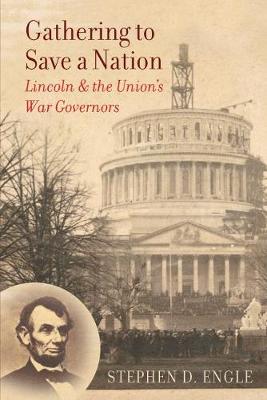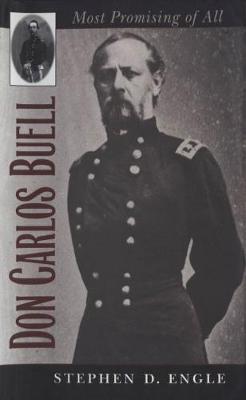Civil War America
2 total works
In this rich study of Union governors and their role in the Civil War, Stephen D. Engle examines how these politicians were pivotal in securing victory. In a time of limited federal authority, governors were an essential part of the machine that maintained the Union while it mobilized and sustained the war effort. Charged with the difficult task of raising soldiers from their home states, these governors had to also rally political, economic, and popular support for the conflict, at times against a backdrop of significant local opposition.
Engle argues that the relationship between these loyal-state leaders and Lincoln's administration was far more collaborative than previously thought. While providing detailed and engaging portraits of these men, their state-level actions, and their collective cooperation, Engle brings into new focus the era's complex political history and shows how the Civil War tested and transformed the relationship between state and federal governments.
Engle argues that the relationship between these loyal-state leaders and Lincoln's administration was far more collaborative than previously thought. While providing detailed and engaging portraits of these men, their state-level actions, and their collective cooperation, Engle brings into new focus the era's complex political history and shows how the Civil War tested and transformed the relationship between state and federal governments.
Major General Don Carlos Buell stood among the senior Northern commanders early in the Civil War, led the Army of the Ohio in the critical Kentucky theater in 1861-62, and helped shape the direction of the conflict during its first years. Only a handful of Northern generals loomed as large on the military landscape during this period, and Buell is the only one of them who has not been the subject of a full-scale biography.
A conservative Democrat, Buell viewed the Civil War as a contest to restore the antebellum Union rather than a struggle to bring significant social change to the slaveholding South. Stephen Engle explores the effects that this attitude--one shared by a number of other Union officers early in the war--had on the Northern high command and on political-military relations. In addition, he examines the ramifications within the Army of the Ohio of Buell's proslavery leanings.
A personally brave, intelligent, and talented officer, Buell nonetheless failed as a theater and army commander, and in late 1862 he was removed from command. But as Engle notes, Buell's attitude and campaigns provided the Union with a valuable lesson: that the Confederacy would not yield to halfhearted campaigns with limited goals.
A conservative Democrat, Buell viewed the Civil War as a contest to restore the antebellum Union rather than a struggle to bring significant social change to the slaveholding South. Stephen Engle explores the effects that this attitude--one shared by a number of other Union officers early in the war--had on the Northern high command and on political-military relations. In addition, he examines the ramifications within the Army of the Ohio of Buell's proslavery leanings.
A personally brave, intelligent, and talented officer, Buell nonetheless failed as a theater and army commander, and in late 1862 he was removed from command. But as Engle notes, Buell's attitude and campaigns provided the Union with a valuable lesson: that the Confederacy would not yield to halfhearted campaigns with limited goals.

